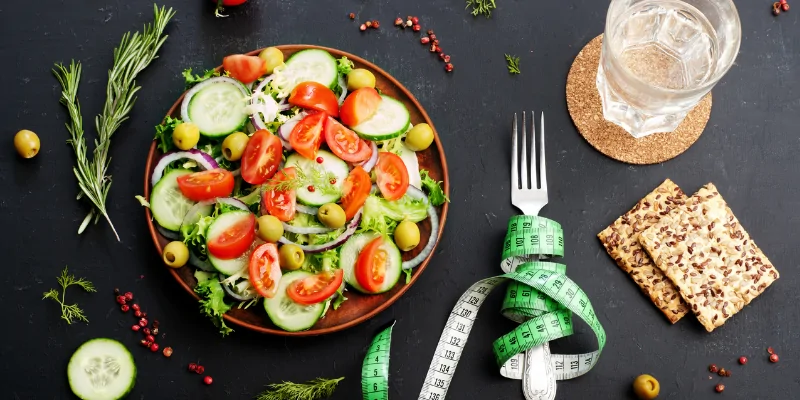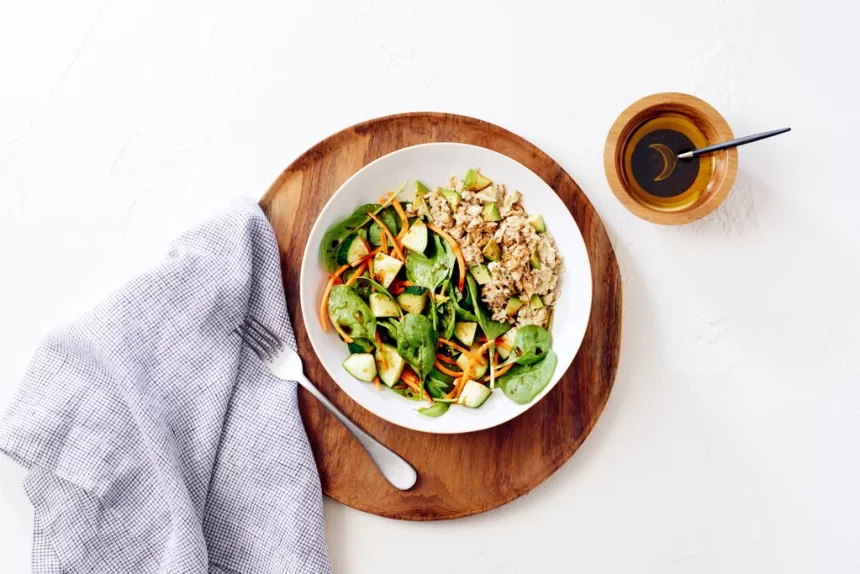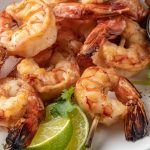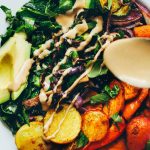Vegetarian diet has become more popular in recent years. This diet is associated with a lower risk of chronic disease and may aid in weight loss. However, losing weight on a vegan diet can be a challenge. This is especially true if you eat highly processed and refined carbohydrates. This article explains how to lose weight with a vegan diet.
What is vegetarian?
Vegetarian meals do not include meat, fish or poultry. Some people eat it for religious or ethical reasons. While others are concerned about the potential health benefits.
The main types of vegetarianism are:
- Lacto-ovo-vegetarian: eggs and milk are allowed.
- Lacto-vegetarian: Dairy products are allowed. But don’t use eggs, meat, fish or poultry.
- Ovo-vegetarian: Eggs are allowed, but no milk, meat, fish or poultry.
- Vegan: Remove all animal products. Including honey, milk and eggs
- Other vegetarian approaches include flexitarian (which includes some animal foods but is mostly vegetarian) and pescatarian (which includes meat but no meat).
A vegan diet often focuses on fruits, vegetables and whole grains. Legumes, nuts and seeds contain fewer calories, fat and protein. This diet’s focus on nutritious foods has been linked to a lower incidence of heart disease. Certain cancers, diabetes and low blood pressure.
In addition, research shows that a plant-based diet can be an effective weight loss strategy. However, the benefits of a vegetarian diet depend on the type of food you eat and your overall diet. Overeating or choosing a lot of processed foods may have fewer pros and cons than eating whole, plant-based foods.
Barriers to weight loss for vegetarians
A vegan diet can seem like an effective way to shed extra kilos. But there are many factors that can prevent this.
Consuming more calories than you need can lead to weight gain. Even if you are vegetarian and eat a nutritious diet. This is normal if you reduce your protein intake. Protein promotes satiety by reducing levels of the hormone ghrelin. It is a hormone that controls hunger. This reduces overall calorie intake and promotes weight loss.
If you don’t eat enough protein, you may end up eating enough food to feel full. Eating a plant-based diet can easily meet your protein needs. But cutting meat out of your diet can be difficult at first.

Eat a lot of refined carbohydrates
Foods high in refined carbohydrates, such as bread, pizza and pasta, are easy to indulge in when following a vegan diet. They are widely available and are sometimes the only vegetarian option at restaurants and social gatherings. Foods high in refined carbohydrates are low in fiber and do not suppress hunger. The same applies to whole grains and complex carbohydrates.
In addition, some studies have shown that refined carbohydrates stimulate insulin release. It is a hormone that controls blood sugar levels, which can lead to weight gain. In fact, a study of nearly 500,000 adults found a clear link between higher insulin levels after eating carbs and body mass index.
Foods that is too high in calories
Switching to a vegetarian diet can dramatically increase intake of a high-fat, plant-based diet. A vegetarian diet, which usually consists of nuts, seeds, peanut butter, avocado or chicken, contains only one gram of calories – compared to 4 calories per serving. grams of protein and carbohydrates.
For example, 2 tablespoons (32 grams) of fruit contains 191 calories, 148 of which come from fat. In addition, many people eat peanut butter and other healthy fats exceed the recommended rate.
Emphasis on highly processed plant foods
If you rely on a lot of processed foods as part of a vegetarian diet, you may find it difficult to lose weight.
Countless products are technically organic, but still contain unwanted and other unhealthy ingredients. There are meat substitutes, frozen meals, baked goods, packaged desserts and vegan cheeses.
These foods are usually high in calories and sugar. including highly processed sodium compounds that are corrosive chemicals and dyes. As a result, it can cause weight gain when consumed in large amounts. In fact in one review Consumption of highly processed foods is associated with an increased risk of obesity. Increased levels of bad cholesterol and blood pressure.
Tips for losing weight while following a vegetarian diet
If you are vegetarian Some methods that can help lose weight include:
- Fill half of the pan with non-starchy vegetables. Choosing fiber-rich vegetables like broccoli, cauliflower, zucchini, leafy greens and mushrooms can help you feel full and reduce calories.
- All meals and snacks contain protein. Protein-rich plant foods include beans, nuts, seeds, legumes, eggs, dairy, and soy foods (such as tempeh, tofu, and edamame).
- Choose complex carbohydrates. These satisfaction-promoting foods include whole grains, starchy vegetables, fruits, and legumes.
- Beware of high-calorie foods. Mix nuts, seeds and healthy oils with low-calorie foods to avoid overeating.
- Eat primarily natural foods Unprocessed foods, such as fruits and vegetables, don’t carry things you don’t want.
- Limit highly processed foods Avoid meat substitutes, frozen foods, and other highly processed foods. They can include unhealthy additives, salt and sugar.
- A balanced vegan diet that emphasizes whole plant foods and limits refined carbohydrates and highly processed ingredients can help you lose weight.
- However, don’t forget other important things. factors that contribute to weight loss, such as getting enough sleep, staying hydrated and exercising.

Plant-based foods that help you lose weight
For maximum weight loss Choose a vegetarian diet high in processed, plant-based foods. Milk and eggs can also be included. It depends on your particular diet. Plant foods that can help you lose weight include:
- Non-starchy vegetables: broccoli, peppers, cauliflower, zucchini, mushrooms, tomatoes, apples, carrots, celery, spinach.
- Starchy vegetables: peas, sweet potatoes, corn, winter squash.
- Fruits: Fruits, olives, apples, apples, grapes, olives, kiwi, mango.
- Whole grains: quinoa, brown rice, farro, millet, barley, bulgur.
- Potatoes: mushrooms, black beans, kidney beans, kidney beans
- Nuts: almonds, walnuts, pistachios, cashews Sunflower seeds Chia seeds Ground butter
- Lean protein: legumes Pumpkins, nuts, seeds, peanut butter, eggs, Greek yogurt, milk, soy products such as tofu, tempeh and edamame.
- Healthy fats: avocados, olives, coconut oil, nuts, seeds, peanut butter, cheese.
- Water and other healthy drinks: soft natural drinks, fruit juices, coffee or tea on a regular basis.










